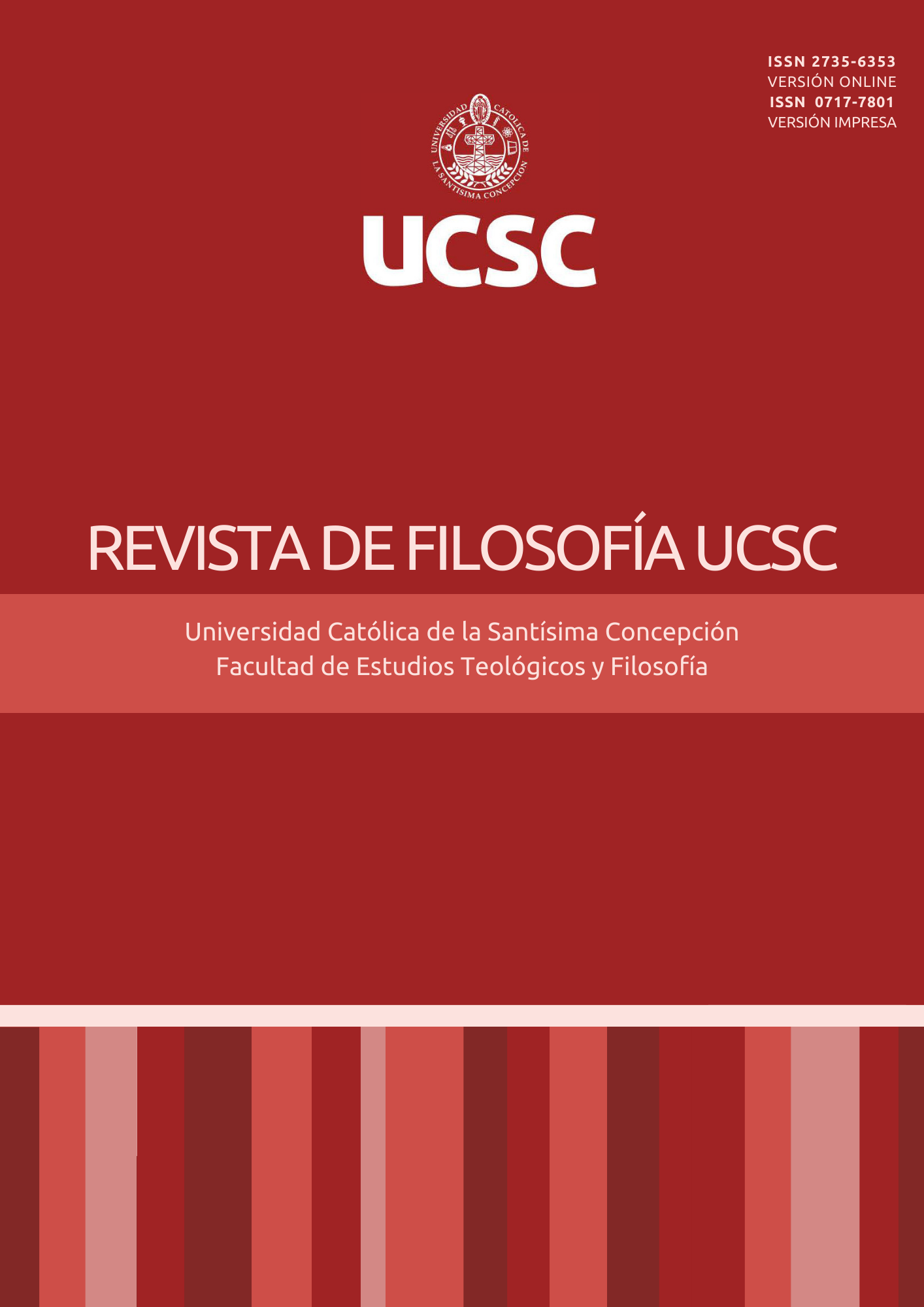The Sense of Anarchy and the Anarchy of Sense in Richir and Deleuze
Main Article Content
Abstract
This article compares the philosophies of Marc Richir and Gilles Deleuze through the notions of “anarchy” and “sense,” exploring how these transform classical phenomenology. It argues that both authors replace the traditional focus on the subject with a phenomenology of Sinnbildung or “sense-in-the-making.” Richir radicalizes the phenomenological epoché toward a generative contingency, while Deleuze develops a science of surface effects rooted in concept creation and the simulacrum. Both propose a dynamic “self,” detached from traditional subjectivity, and articulate the link between interiority and exteriority in sense-making processes. This work shows how Richir and Deleuze destabilize subjective foundations, proposing an anarchic phenomenology that redefines the relationship between appearance, simulacrum, and sense production.
Downloads
Metrics
Article Details

This work is licensed under a Creative Commons Attribution-NonCommercial 4.0 International License.
The Revista de Filosofía UCSC is an open access journal and does not charge for publication. In addition, it regulates its Copyright and access policy according to the Creative Commons Attribution-NonCommercial 4.0 International Public License (CC BY-NC 4.0), therefore sharing (reproducing and distributing the material in any medium or format) and adaptation (modifying, transforming, and creating from the material) is allowed as long as proper credit is given and the citation is included with the corresponding data. Moreover, it is not allowed to use the material for commercial purposes.
References
Barthes, R. (1964). Essais critiques. Éditions du Seuil.
Deleuze, G. (1969). Logique du sens. Éditions de Minuit.
Deleuze, G. (2003). L’immanence: une vie… En D. Lapoujade (Ed.), Deux régimes de fous. Textes et entretiens 1975-1995 (pp. 359-363). Éditions de Minuit.
Deleuze, G., & Guattari, F. (1991). Qu’est-ce que la philosophie?. Éditions de Minuit.
Descartes, R. (1973). Les principes de la philosophie. En F. Alquié (Ed.), Œuvres philosophiques, tome III (pp. 95). Garnier.
Derrida, J. (1990). Le Problème de la genèse dans la philosophie de Husserl. PUF.
Fichte, J. G. (1795). Grundriss des eigentümlichen der Wissenschaftslehre in Rücksicht auf das theoretische Vermögen. (GA I, Vol. 3).
Fink, E. (2018). Sein, Wahrheit, Welt. Vor-Fragen zum Problem des Phänomen-Begriffs. En V. Cesarone (Ed.), Sein, Wahrheit, Welt (EFGA 6, pp. 301-327). Karl Alber.
Forestier, F. (2014, 7 de noviembre). Le multiple et la pluralité - autour de Deleuze et Richir. Strass de la Philosophie. http://strassdelaphilosophie.blogspot.com/2014/11/le-multiple-et-la-pluralite-autour-de.html
Husserl, E. (1976a). Die Krisis der europäischen Wissenschaften und die transzendentale Phänomenologie. Eine Einleitung in die phänomenologische Philosophie (Hua VI). (W. Biemel, Ed.). M. Nijhoff.
Husserl, E. (1976b). Ideen zu einer reinen Phänomenologie und phänomenologischen Philosophie. Erstes Buch. Allgemeine Einführung in die reine Phänomenologie. (Hua III/I). (K. Schuhmann, Ed.). M. Nijhoff.
Nietzsche, F. (1988). Nachgelassene Fragmente 1884-1885 (G. Colli & M. Montinari, Eds.). Gruyter.
Richir, M. (1970). Le Rien enroulé - Esquisse d’une pensée de la phénoménalisation. Textures, 70/7.8.
Richir, M. (1981). Recherches phénoménologiques (I, II, III). Fondation pour la phénoménologie transcendantale. Ousia.
Richir, M. (1992). Méditations phénoménologiques. Phénoménologie et phénoménologie du langage. J. Millon.
Richir, M. (2006). Fragments phénoménologiques sur le temps et l’espace. J. Millon.
Richir, M. (2010). Variations sur le sublime et le. J. Millon.
Schnell, A. (2011). Le sens se faisant. Marc Richir et la refondation de la phénoménologie transcendantale. Ousia.
Schnell, A. (2015). La déhiscence du sens. Hermann.




